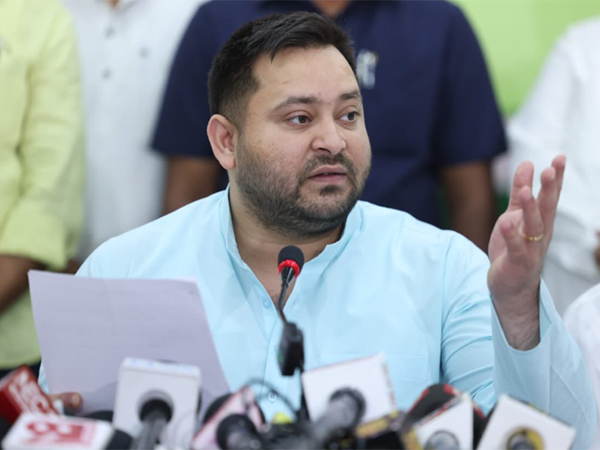UKPNP condemns new restrictions on civil liberties in Pakistan-occupied Jammu and Kashmir
Nov 04, 2024

Brussels [Belgium], November 4 : The United Kashmir People's National Party (UKPNP) has condemned a recent notification from the government of Pakistan-occupied Jammu and Kashmir that imposes stringent restrictions on public gatherings and civil liberties.
Key leaders, including Central Exile Chairman Sardar Shaukat Ali Kashmiri, Central spokesperson Nasir Aziz Khan, and others, denounced these measures as blatant violations of fundamental human rights.
The UKPNP criticised the regulations, which limit public assemblies to designated areas approved by the District Magistrate, citing vague "law and order" criteria.
This broad authority effectively allows the government to revoke assembly permissions under the guise of "public safety" or "public disturbance," enabling potential abuse to silence dissent and limit freedom of expression.
The leaders expressed concern that the new permit requirements place undue burdens on civil society organisations and political activists, making peaceful assembly increasingly challenging. The notification also designates certain areas as "red zones," further curtailing political activities in key locations and relegating protests to remote areas where they may not attract media attention or governmental scrutiny.
Chairperson of the United Kashmir People's National Party, Sardar Shaukat Ali Kashmiri highlighted that these restrictions come at a time when citizens are increasingly vocal about their political, economic, and social grievances. The UKPNP warned that such oppressive measures will deepen the mistrust between the state and its citizens, undermining the government's legitimacy.
In response to these developments, the UKPNP called on the United Nations and the international community to hold Pakistan accountable for these repressive actions. It urged a reassessment of Pakistan's human rights obligations under international law and encourage global advocates to support the people of Pakistan-occupied Jammu and Kashmir in their pursuit of fundamental rights, justice, and freedom.
Human rights violations in PoJK encompass a range of issues that undermine the dignity and freedoms of its residents.
Political repression is prevalent, with limited political freedoms and the suppression of dissenting voices; activists and journalists often face harassment, intimidation, and even detention for speaking out against the government.
Freedom of expression is curtailed through media censorship, leading to a chilling effect on reporting, particularly concerning sensitive topics.
Additionally, reports of enforced disappearances and extrajudicial killings by security forces have raised significant concerns about accountability and justice. Socioeconomic rights are also at risk, as many communities struggle with inadequate access to education, healthcare, and economic opportunities, exacerbating poverty and limiting development.


















